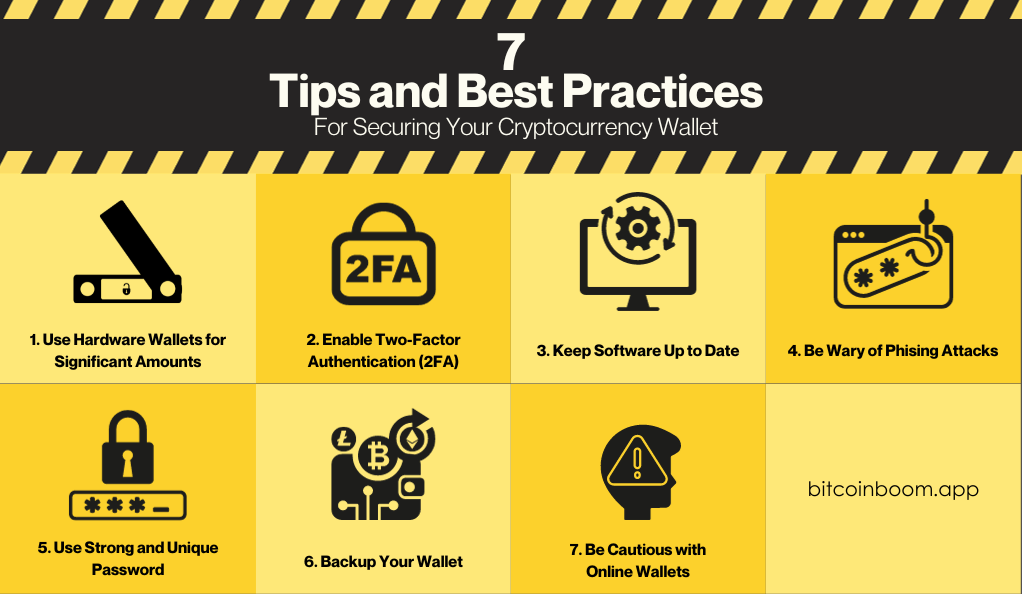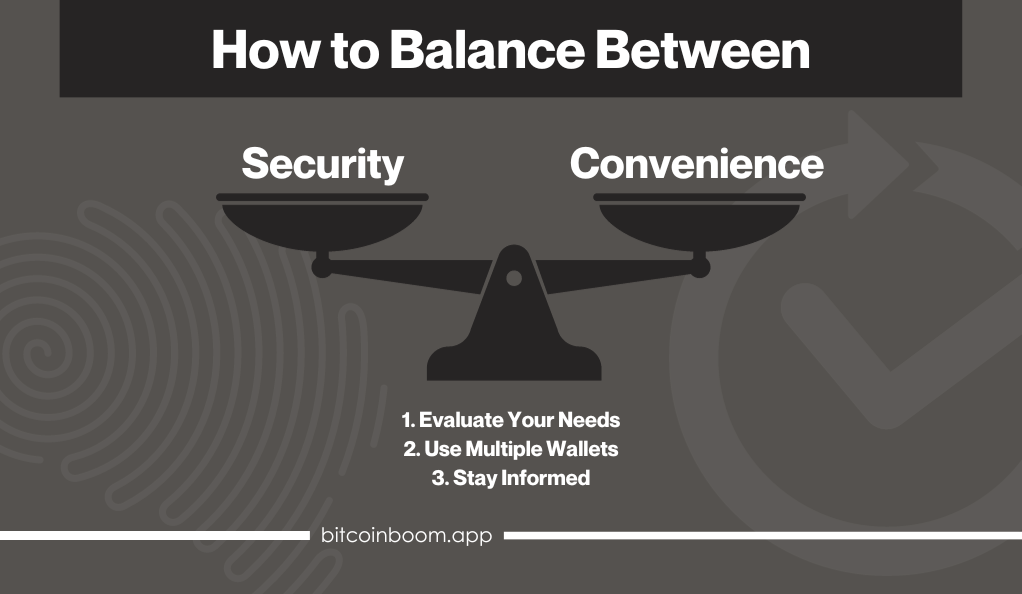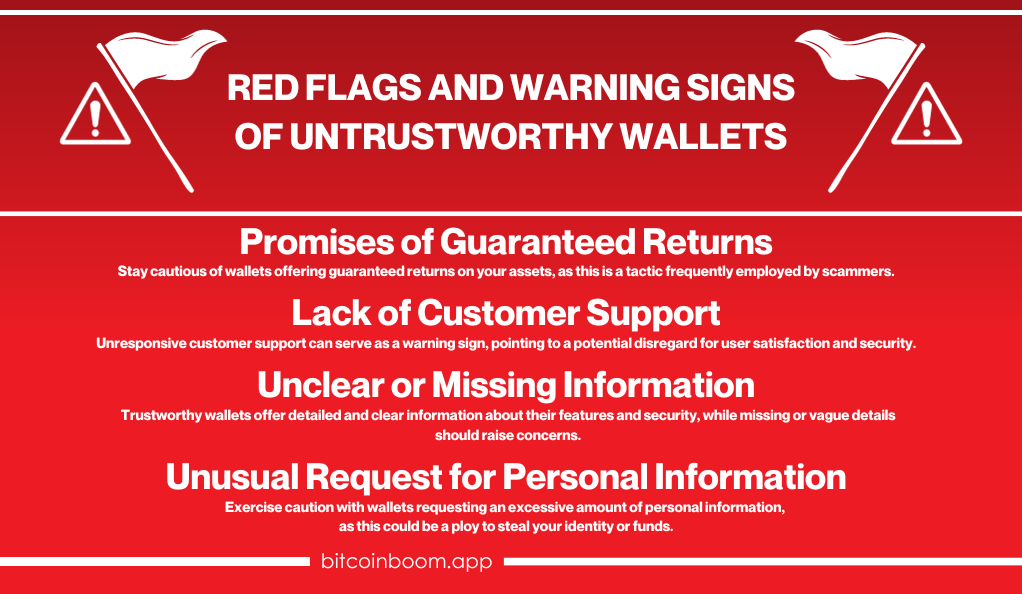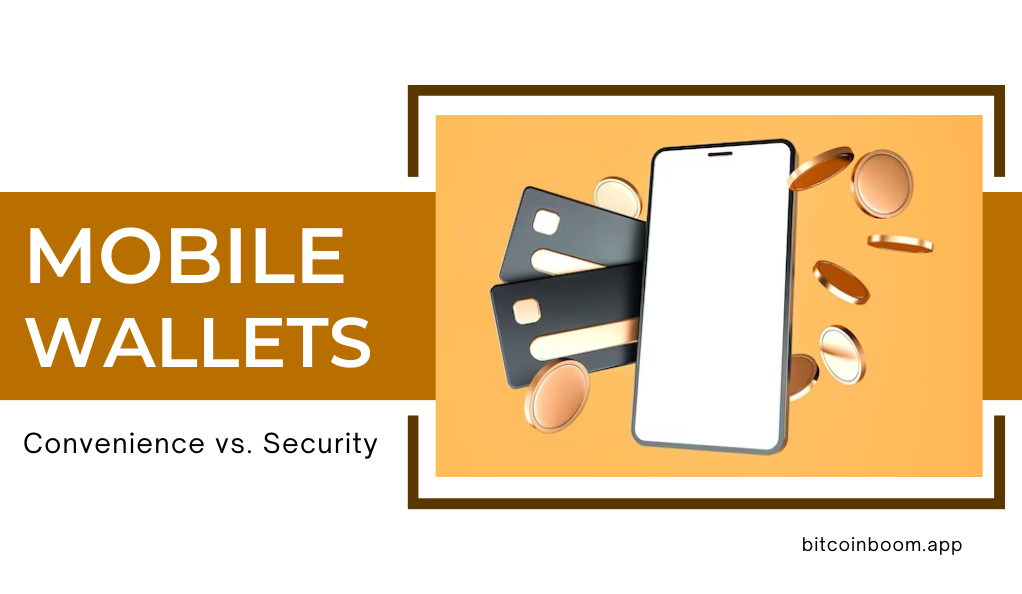In the ever-evolving world of digital currencies, securing your assets is paramount. Cryptocurrencies, with their decentralized nature, offer a new paradigm of financial freedom and flexibility. However, this freedom comes with the responsibility of safeguarding your digital wealth. The cornerstone of this security is choosing the right cryptocurrency wallet, a decision that should not be taken lightly.
A cryptocurrency wallet is more than just a tool to store your digital assets; it is your personal gateway to the blockchain network. It holds your private keys, the critical piece of information required to authorize outgoing transactions on the blockchain network. In simpler terms, whoever has access to the private keys has control over the assets associated with them.
Types of Cryptocurrency Wallets
Cryptocurrency wallets come in various types, each boasting unique features, security levels, and user-friendliness. Generally, you can categorize them into three main types:
- Software Wallets: These are downloadable applications for your computer or smartphone, providing convenient access to your assets. However, their security is only as strong as the device they are installed on. For instance, your assets might be at risk if your computer contracts a virus or someone steals your phone.
- Hardware Wallets: These physical devices securely store your cryptocurrency offline, safeguarding them from online hacking attempts. They are widely regarded as one of the safest options for storing substantial cryptocurrency amounts.
- Paper Wallets: This physical document holds your cryptocurrency address and private key, and you can store it securely after printing it out. Although it’s safe from online hacking attempts, it’s vulnerable to physical damage and can be misplaced.
Each type of wallet has its pros and cons, and the best choice depends on your individual needs and the amount of security you require. In the following sections, we will delve deeper into each type of wallet, helping you understand their features, security measures, and how to choose the one that best suits your needs.
Understanding Different Types of Cryptocurrency Wallets
Navigating through the diverse landscape of cryptocurrency wallets can be daunting, but understanding the different types available is crucial for making an informed decision. Each type of wallet offers a unique balance between security and convenience, and the right choice depends on your individual needs and how you intend to use your digital assets.
Hardware Wallets
Hardware wallets are physical devices that store the user’s private keys offline, providing an extra layer of security against online hacking attempts. They are considered one of the safest options for storing cryptocurrencies, especially for substantial amounts.
- Pros:
- Enhanced Security: Since the private keys never leave the device, they are safe from online breaches.
- Recovery Options: Most hardware wallets come with a recovery phrase option, allowing users to recover their funds if the device is lost or damaged.
- Multi-Currency Support: Many hardware wallets support a wide range of cryptocurrencies.
- Cons:
- Cost: Hardware wallets can be expensive, with prices ranging from $50 to $200.
- Less Convenient for Active Trading: They are best suited for long-term holding as accessing funds can be less convenient compared to software wallets.
- Popular Brands:
- Ledger Nano S and X
- Trezor Model T and One
- KeepKey
Software Wallets
Software wallets are applications that can be installed on computers or smartphones, providing easy access to your assets.
- Pros:
- Convenience: Quick and easy access to your cryptocurrencies, making them ideal for active trading.
- Free: Most software wallets are free to download and use.
- Variety: There are numerous options available catering to different needs.
- Cons:
- Security Risks: They are only as secure as the device they are installed on. If your computer gets a virus or your phone is stolen, your assets could be at risk.
- Dependence on Third Parties: Some software wallets are hosted by third parties, which could pose additional risks.
- Types:
- Desktop Wallets: Installed on a PC or laptop.
- Mobile Wallets: Apps for smartphones.
- Web Wallets: Accessed through web browsers.
Paper Wallets
Paper wallets are physical documents that contain your cryptocurrency address and private key.
- Pros:
- Immunity to Online Hacking: Since they are offline, they cannot be hacked remotely.
- Full Control: You have full control over your assets without dependence on third-party services.
- Cons:
- Risk of Physical Damage or Loss: They can be damaged by water or fire, or lost.
- Less User-Friendly: The process of transferring assets can be more complex compared to other types of wallets.
Understanding the strengths and weaknesses of each type of wallet is crucial for safeguarding your digital assets. In the next sections, we will delve deeper into how to secure your wallet, evaluate user experience, and ensure compatibility with your cryptocurrency needs.
Security: The Paramount Factor
When it comes to managing digital assets, security is paramount. Cryptocurrencies operate on decentralized networks, and once a transaction is made, it cannot be reversed. This irreversible nature of transactions underscores the importance of securing your cryptocurrency wallet. In this section, we delve into the critical aspects of wallet security, offering tips and best practices to safeguard your digital wealth.
Importance of Security in Cryptocurrency Wallets
The decentralized nature of cryptocurrencies means that the responsibility of security falls squarely on the user. Unlike traditional banking systems, there is no central authority to revert fraudulent transactions or restore lost funds. This makes the security of your cryptocurrency wallet non-negotiable.
Tips and Best Practices for Securing Your Cryptocurrency Wallet

- Use Hardware Wallets for Significant Amounts: If you are holding a substantial amount of cryptocurrency, consider using a hardware wallet. The offline nature of hardware wallets provides an additional layer of security.
- Enable Two-Factor Authentication (2FA): Always enable 2FA on wallets that support it. This introduces an additional security layer, guaranteeing that an attacker would require a second verification form even if they manage to compromise your password.
- Keep Software Up to Date: Ensure that your wallet software and any associated applications are up to date. Developers regularly release updates to patch vulnerabilities.
- Be Wary of Phishing Attacks: Be vigilant about phishing attacks. Never enter your private keys or recovery phrases on suspicious websites.
- Use Strong and Unique Passwords: Use strong, unique passwords for your wallet and any related accounts. Avoid using easily guessable information.
- Backup Your Wallet: Regularly backup your wallet, especially if you are using a software or mobile wallet. Ensure that backups are stored securely.
- Be Cautious with Online Wallets: While online wallets are convenient, they are also more susceptible to hacking. Use them cautiously and avoid storing large amounts of cryptocurrencies in them.
Common Security Threats and How to Avoid Them
- Phishing Attacks: Scammers may attempt to trick you into revealing your private keys or recovery phrases. Always verify the authenticity of websites and never click on suspicious links.
- Malware: Malicious software can steal your wallet information. Ensure that your device has up-to-date antivirus software.
- Physical Theft: For hardware wallets, there is a risk of physical theft. Store your device in a secure location.
- Lost Access: Losing access to your wallet, due to device failure or forgetting your credentials, can result in lost funds. Regular backups and writing down recovery phrases can mitigate this risk.
By prioritizing security and following best practices, you can significantly reduce the risk of losing your digital assets. In the next sections, we will explore the user experience, features, and compatibility of cryptocurrency wallets, providing you with comprehensive knowledge to make an informed choice.
User Experience and Accessibility
A seamless user experience and easy accessibility are crucial factors when choosing a cryptocurrency wallet. The wallet’s interface should not only be user-friendly but also provide robust functionality to cater to both novice and experienced users. In this section, we delve into the aspects of user experience and accessibility that you should consider when selecting a cryptocurrency wallet.
Evaluating the User Interface and Ease of Use
- Intuitive Design: Look for wallets with an intuitive design and straightforward navigation. The wallet should make it easy to send, receive, and manage your cryptocurrencies.
- Clear Transaction History: A well-designed wallet will provide a clear and detailed transaction history, helping you keep track of your funds.
- Built-in Help and Support: Access to help and support directly from the wallet interface can be invaluable, especially for new users.
Accessibility: Cross-Platform Compatibility and Backup Options
When considering accessibility in choosing a cryptocurrency wallet, it’s vital to look for cross-platform compatibility and robust backup options. Opt for a wallet that supports various operating systems and devices to guarantee access to your funds, no matter which device you are currently using. Ensuring the wallet offers strong backup options is also crucial, as this will be your safety net for recovering funds in case your device gets lost or encounters a failure. Additionally, some wallets provide cloud synchronization features, enabling secure access to your wallet across different devices, further enhancing accessibility and convenience.
Community and Customer Support: Why They Matter
An active community surrounding a cryptocurrency wallet is an invaluable asset, offering a platform for seeking assistance, exchanging information, and keeping abreast of the wallet’s most recent advancements. It is crucial to choose a wallet supported by a team renowned for their responsive and helpful customer support, ensuring that any issues or queries you might have are addressed promptly and effectively. Additionally, selecting a wallet that undergoes regular updates and maintenance is paramount, as this ensures that the wallet remains compatible with the latest technologies and adheres to up-to-date security protocols, providing you with a secure and seamless experience.
Ensuring a Smooth Onboarding Experience
- Easy Setup: The wallet setup process should be straightforward, with clear instructions and guidance.
- Educational Resources: Wallets that provide educational resources can help users understand how to securely manage their digital assets.
- Security Education: The wallet should educate users on best practices for securing their funds, emphasizing the importance of backups and secure password practices.
By prioritizing user experience and accessibility, you ensure that managing your digital assets is not only secure but also straightforward and enjoyable. In the following sections, we will explore the features, compatibility, and reputation of cryptocurrency wallets, guiding you towards making an informed decision tailored to your needs.
Features and Functionality
The features and functionality of a cryptocurrency wallet play a crucial role in determining its usability and security. From basic transaction capabilities to advanced security measures, a wallet’s features can significantly impact your experience and the safety of your digital assets. In this section, we explore the essential features to look for in a cryptocurrency wallet and how they contribute to a seamless and secure user experience.
Must-Have Features in a Cryptocurrency Wallet
- Private Key Ownership: Ensure that the wallet gives you full control over your private keys. Wallets that keep your private keys on your own device tend to be safer than those storing them on a server.
- Backup and Recovery Options: Look for wallets that provide easy-to-use backup and recovery options. This is crucial for safeguarding your assets in case of device loss or failure.
- Security Measures: Ensure the wallet has robust security measures in place, such as encryption, pin codes, and two-factor authentication.
- User-Friendly Interface: The wallet should have an intuitive and user-friendly interface, making it easy for users of all experience levels to navigate and manage their assets.
- Transaction History: A clear and detailed transaction history helps you keep track of your funds and monitor any unauthorized activity.
- Support for Multiple Cryptocurrencies: If you hold various cryptocurrencies, look for a wallet that supports multiple assets, providing convenience and flexibility.
Additional Features That Could Enhance Your Experience
Exchange integration is a feature in some wallets that connects directly to cryptocurrency exchanges, enabling you to trade assets straight from your wallet, streamlining the process and enhancing user experience. Additionally, the capability to make in-app purchases and swaps of cryptocurrencies introduces an extra layer of convenience, allowing for quick and easy transactions. Wallets that offer customizable transaction fees give you the flexibility to adjust costs, which can be particularly beneficial during periods of network congestion to save on transaction expenses. Furthermore, multisignature support in wallets necessitates the authorization of a transaction with multiple private keys, providing an extra security layer and ensuring that your assets are protected.
How to Balance Between Security and Convenience

- Evaluate Your Needs: Consider how you plan to use your wallet. If you are holding assets long-term, prioritize security. If you are actively trading, you might prioritize convenience.
- Use Multiple Wallets: Consider using multiple wallets to balance security and convenience. Use a hardware wallet for long-term storage and a software wallet for active trading.
- Stay Informed: Keep yourself informed about the latest security practices and features to ensure that you are using your wallet safely and efficiently.
By carefully considering the features and functionality of a cryptocurrency wallet, you can choose a solution that not only meets your needs but also provides a secure and user-friendly experience. In the next sections, we will delve into compatibility, integration, and the importance of choosing a reputable wallet provider.
Compatibility and Integration
Selecting a cryptocurrency wallet that seamlessly integrates with your digital lifestyle and other financial tools is crucial for a smooth experience. Compatibility and integration are key factors that can significantly impact how you manage and interact with your digital assets. In this section, we explore the importance of choosing a wallet that aligns with your cryptocurrency needs and the broader financial ecosystem.
Ensuring Wallet Compatibility with Different Cryptocurrencies
If you diversify your digital asset portfolio, it’s wise to choose wallets that support a broad spectrum of cryptocurrencies. This approach not only offers convenience but also minimizes the necessity for multiple wallets, streamlining your asset management. Make sure to confirm that the wallet supports the specific tokens you are interested in, particularly if you are investing in newer or less common cryptocurrencies. Additionally, ensure that the wallet is compatible with the blockchain networks of the cryptocurrencies you possess. This is a crucial step, as some wallets may only provide support for particular networks, potentially limiting your ability to access and manage your digital assets effectively.
Integration with Exchanges and Other Financial Tools
Exchange integration in wallets plays a crucial role, as it enables seamless trading and efficient management of assets all under one roof. When selecting a cryptocurrency wallet, it’s beneficial to choose one that integrates smoothly with cryptocurrency exchanges. Additionally, ensure that the wallet is compatible with other financial tools and platforms you utilize. This compatibility ensures a unified and streamlined experience in managing your financial assets. For developers and advanced users, some wallets provide API access, opening up possibilities for custom integrations and the creation of tailored functionalities to enhance your experience and meet specific needs.
Future-Proofing: Preparing for Upcoming Cryptocurrencies and Technologies
- Regular Updates: Choose a wallet that receives regular updates, ensuring compatibility with new cryptocurrencies and technologies as they emerge.
- Community and Developer Support: A strong community and developer support can be indicative of a wallet’s commitment to staying current and compatible with the latest advancements.
- Adaptability: Opt for wallets that have a track record of adapting to changes and innovations in the cryptocurrency space.
Checking for Device and Platform Compatibility
- Cross-Platform Support: Ensure the wallet is available and fully functional across different operating systems and devices, providing flexibility in how you access and manage your assets.
- Mobile and Desktop Options: Consider wallets that offer both mobile and desktop versions, catering to your usage preferences and providing access on the go.
- Browser Extensions: Some wallets offer browser extensions, adding an extra layer of convenience for online transactions and management.
When you prioritize compatibility and integration, you secure a cryptocurrency wallet that not only fulfills your present requirements but also stands ready to evolve with future developments and shifts in the digital asset realm. In the next section, we will delve into the importance of reputation and trustworthiness in choosing a cryptocurrency wallet, guiding you towards a secure and reliable choice.
Reputation and Trustworthiness
In the decentralized world of cryptocurrencies, the reputation and trustworthiness of a wallet provider are paramount. With numerous options available, distinguishing between reliable wallets and potential scams is crucial for safeguarding your digital assets. In this section, we explore how to research, verify, and choose a cryptocurrency wallet that stands out for its credibility and security.
Researching and Verifying the Credibility of Wallet Providers
- Check the Wallet’s History: Investigate how long the wallet has been in operation. Wallets with a longer history tend to be more reliable and have stood the test of time.
- Look for Open-Source Wallets: Open-source wallets allow the community and security experts to review and audit the code, ensuring transparency and security.
- Verify Security Audits: Check if the wallet has undergone security audits by reputable firms. This demonstrates the provider’s commitment to security.
User Reviews and Testimonials: What to Look For
Searching for user feedback is a crucial step in evaluating a cryptocurrency wallet. Dive into various platforms such as forums, social media, and app stores to find user reviews and testimonials. Pay special attention to negative reviews, particularly those highlighting security concerns or instances of fund loss, as these can provide valuable insights into potential risks. While considering user feedback, also take a moment to assess the wallet’s overall rating. However, bear in mind that a high rating doesn’t necessarily guarantee the wallet’s reliability, and it’s important to look at the bigger picture by considering all aspects of user feedback.
Red Flags and Warning Signs of Untrustworthy Wallets

- Promises of Guaranteed Returns: Be wary of wallets that promise guaranteed returns on your assets. Scammers commonly use this tactic.
- Lack of Customer Support: A lack of responsive customer support can be a red flag, indicating a lack of commitment to user satisfaction and security.
- Unclear or Missing Information: Reliable wallets provide clear information about their features, security measures, and usage. Missing or vague information is a warning sign.
- Unusual Request for Personal Information: Be cautious of wallets that ask for excessive personal information. This could be an attempt to steal your identity or funds.
Making an Informed Decision
- Balance Security and Usability: Choose a wallet that balances robust security measures with a user-friendly experience.
- Consider Your Specific Needs: Your choice should align with your specific needs, whether you are a long-term holder or an active trader.
- Don’t Rush the Decision: Take your time to research and compare different wallets. The security of your digital assets is worth the effort.
By prioritizing reputation and trustworthiness in your choice of a cryptocurrency wallet, you enhance the security of your digital assets and ensure a reliable and secure experience. In the next section, we will provide a final recap and guide you through the process of making your decision, helping you find the perfect wallet for your cryptocurrency needs.
Conclusion
Navigating the world of cryptocurrencies requires not just an understanding of the market, but also a keen sense of how to safeguard your digital assets. The choice of a cryptocurrency wallet is paramount in this journey, serving as the guardian of your private keys and the gateway to your investments. Throughout this guide, we have explored the various facets of cryptocurrency wallets, delving into their types, security measures, user experience, features, and the importance of choosing a reputable provider. With this knowledge in hand, you can confidently make an informed decision, striking the right balance between security, convenience, and functionality to meet your unique needs.
The cryptocurrency landscape is ever-evolving, and staying informed and vigilant is key to navigating it successfully. By choosing the right wallet, prioritizing security, and remaining engaged with the community, you empower yourself to take full advantage of the opportunities that cryptocurrencies offer, all while ensuring the safety and security of your digital wealth. As you embark on this exciting journey, let your knowledge and careful consideration guide you, ensuring a seamless and secure experience in the world of digital assets.





